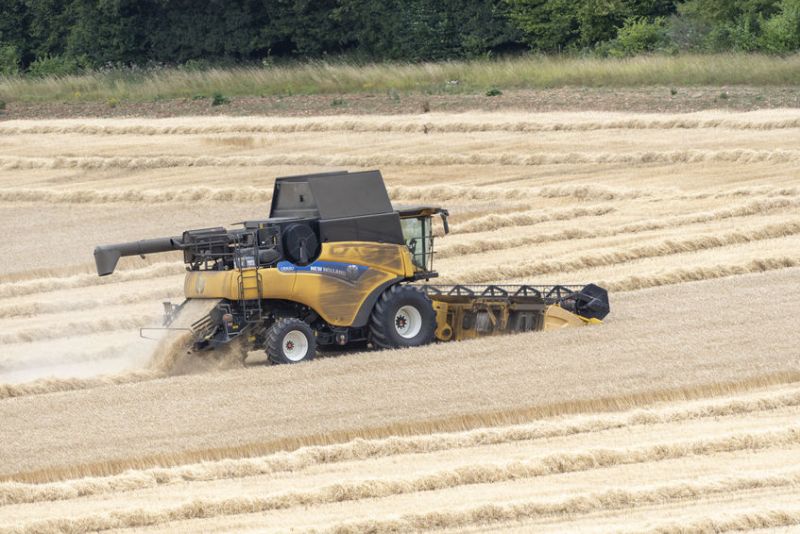UK sees significant drop in yield across all major crops

The NFU’s harvest survey has revealed a significant drop in yield across all major crops, leading the union to call for increased government action.
Results show that wheat yields and winter barley yields were down 18% from 2019, spring barley yields were down 6% and oilseed rape yields were down 15%.
It follows Defra’s recently-published provisional results on the overall volume of production which indicated that the 2020 wheat crop could be the smallest since 1981.
The figures have led the NFU to call for policies that would help farmers cope with volatile weather, build more resilient businesses and continue the supply of food.
As farm payments are set to change from next year, the union has also asked for the prompt and full delivery of BPS payments for 2020.
It is also seeking clarity from the government as to how the gap that the loss in BPS payments would be filled when it starts to be phased out from next year.
NFU combinable crops board chairman Matt Culley said farmers had experienced 'pretty much every weather extreme possible' over the past 12 months.
"These weather patterns are only going to become more frequent so it’s absolutely vital we address this volatility and find solutions to help deal with it.
“This all comes at a time when the importance of domestic food production and food security has been put into sharp focus by the pandemic.
"We know that a productive farming industry is important to the people of this country – 88% of people said so – and we want to ensure this is maintained long into the future."
The arable sector forms the foundation of the British food system, delivering some of the UK's staple foods as well as underpinning other sectors, for example with feed for livestock.
But many arable farms were now experiencing cash flow issues, which are trying to establish next year’s crops with little revenue from this last harvest, the NFU said.
"This situation can be eased in part with farm payments made in full and on time this winter," Mr Culley said, adding that more detail was also needed regarding the new Environmental Land Management schemes.
"For example, schemes to protect crops during drought or flooding, by improving soil structure to increase water holding capacity, will help support arable farmers," he said.








